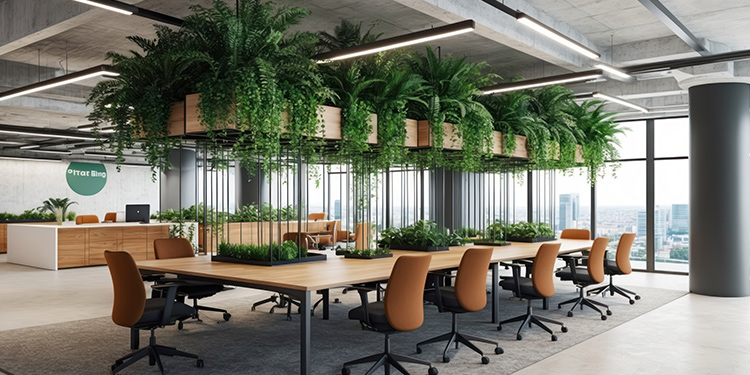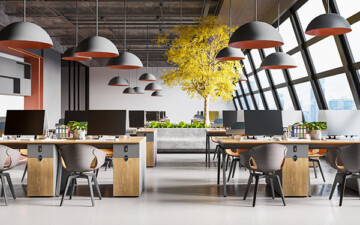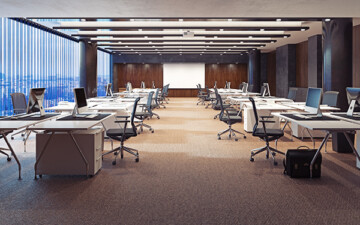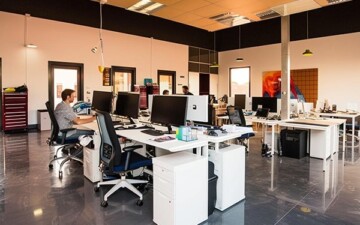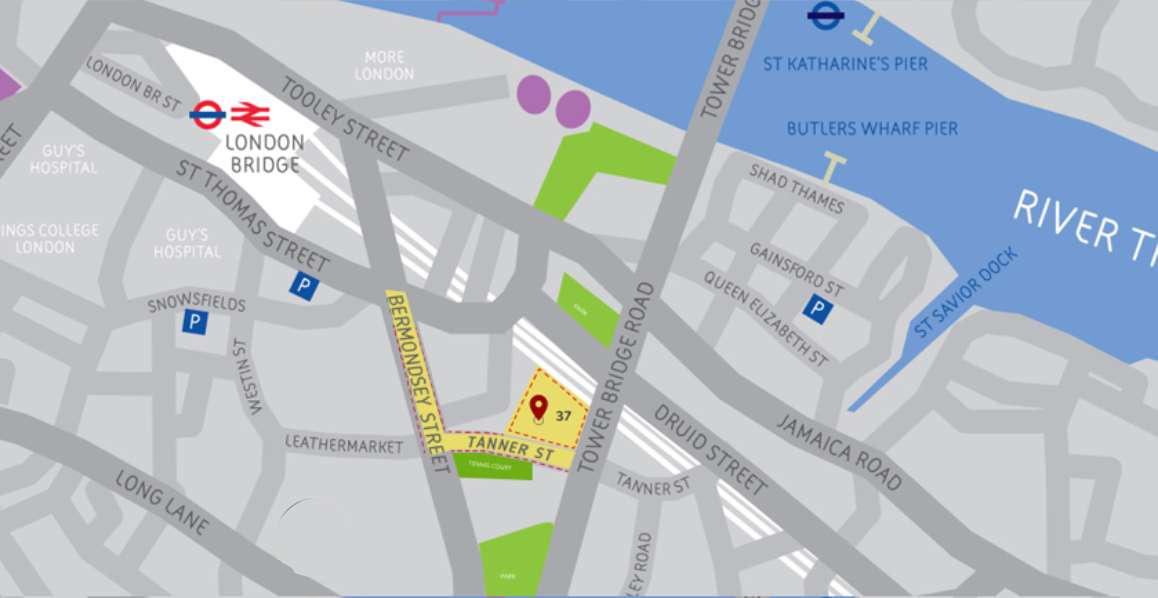It is hard to ignore how the world and society have shifted since sustainability became a central concern. Sustainability awareness is also changing the way businesses function. Organisations too are adapting and introducing greener practices in private offices at a pace that has never been seen before.
Much of this transformation is a result of the wider social awareness of sustainability, including the expectations of employees themselves. In other words, as people become more conscious of environmental responsibility, the pressure they exert can directly influence whether a business thrives or struggles.
Finding innovative ways to “go green” without sacrificing profitability is the biggest challenge for most companies. One of the most effective ways to do this is by adopting sustainable office space practices. In this blog, we explore eco-friendly features in such sustainable private offices and how these contribute to a better future.
Defining Sustainable Workspaces
A sustainable workspace is both a physical and cultural environment built to support the well-being of people and the planet. It recognises our inherent need for connection with the natural world and encourages choices that are fulfilling on a personal level while also remaining ecologically responsible. The aim should be to integrate natural features and develop everyday practices that help reduce our overall footprint.
At present, most private offices consume significant amounts of non-renewable resources. Oil, gas, and coal still provide the bulk of energy for heating, lighting, and transportation. Creating a sustainable workspace is about reducing our reliance on these resources without compromising on performance and efficiency.
Adding a plant or two to a desk is a welcome gesture, but it does not in itself create a sustainable office. Genuine sustainability is achieved through a collection of deliberate choices, both big and small, that together shape a workspace and have a positive impact.
Core Eco-Friendly Features in Modern Private Offices
Modern private offices in areas like Bermondsey reflect the principles of green building design. Some core features of such sustainable private offices are briefly discussed in this section.
- Energy Efficiency
Energy conservation is a fundamental feature of sustainable private offices. LED lighting, motion sensors, and large windows maximise natural daylight while also reducing the dependence on artificial lighting. HVAC systems use smart controls that adjust according to occupancy and weather conditions. Many offices integrate renewable energy sources like rooftop solar panels to supply electricity.
- Flexible Office Layouts
Furniture and partitions in sustainable offices are usually modular or movable. So, spaces can be reconfigured according to requirements. This reduces the need for additional construction and material usage over time.
- Use of Renewable and Recycled Materials
Construction and interior design prioritise materials with low environmental impact. Bamboo, reclaimed timber, recycled steel, and glass are common in flooring, walls, and structural elements. Office furniture is usually made of recycled or renewable materials to extend sustainability across the workspace.
- Integration of Nature
Biophilic design elements are a key feature of modern private offices. Indoor plants improve air quality by filtering pollutants and releasing oxygen. Similarly, living walls and green roofs are incorporated for a visual connection with nature. Landscaped outdoor spaces and water features also lend a natural touch to the office environment.
- Proper Waste Management
Segregated recycling bins and compost stations are installed in sustainable workspaces. By implementing policies that encourage digital documentation, these offices help reduce the usage of paper and single-use plastics.
The Impact of Sustainable Private Offices
Sustainable private offices create their impact across three dimensions: the environmental, the social, and the economic.
Environmentally, they contribute to lowering carbon emissions and minimise waste through thoughtful resource management.
Socially, these workspaces support employee well-being and promote equitable access to facilities. Overall, it helps create a healthier office environment.
From an economic perspective, sustainable private offices can generate long-term cost savings. It can enhance operational efficiency and even strengthen a company’s brand reputation. By prioritising the reuse of materials and recycling, these workspaces also contribute to a circular economy.
Embrace Sustainability With Garden Office Bermondsey
Within Bermondsey lie private office spaces that operate with modern efficiency. What feels like a creative, flexible hub also happens to be a step toward a greener planet. Garden Office Bermondsey gives companies the chance to work in eco-friendly spaces that demand zero extra operational effort. Tenants have access to high-speed internet, meeting rooms, breakout zones, and flexible leases. Book a visit today to see how Garden Office Bermondsey delivers exceptional private offices that respect both business needs and the environment.
Book a tour today!
